Search Posts
Recent Posts
- GriefSPEAK: AI grief glasses. Would you put them on? – Mari Nardolillo Dias May 3, 2024
- API, AP study: Election insights – understanding public preferences in news coverage in 2024 May 3, 2024
- Outdoors in RI: Free Fishing Weekend, coyotes all around, safety, 2A update – Jeff Gross May 3, 2024
- Rhode Island Weather for May 3, 2024 – John Donnelly May 3, 2024
- Honor Roll Q3 for St. Mary Academy-Bay View May 3, 2024
Categories
Subscribe!
Thanks for subscribing! Please check your email for further instructions.
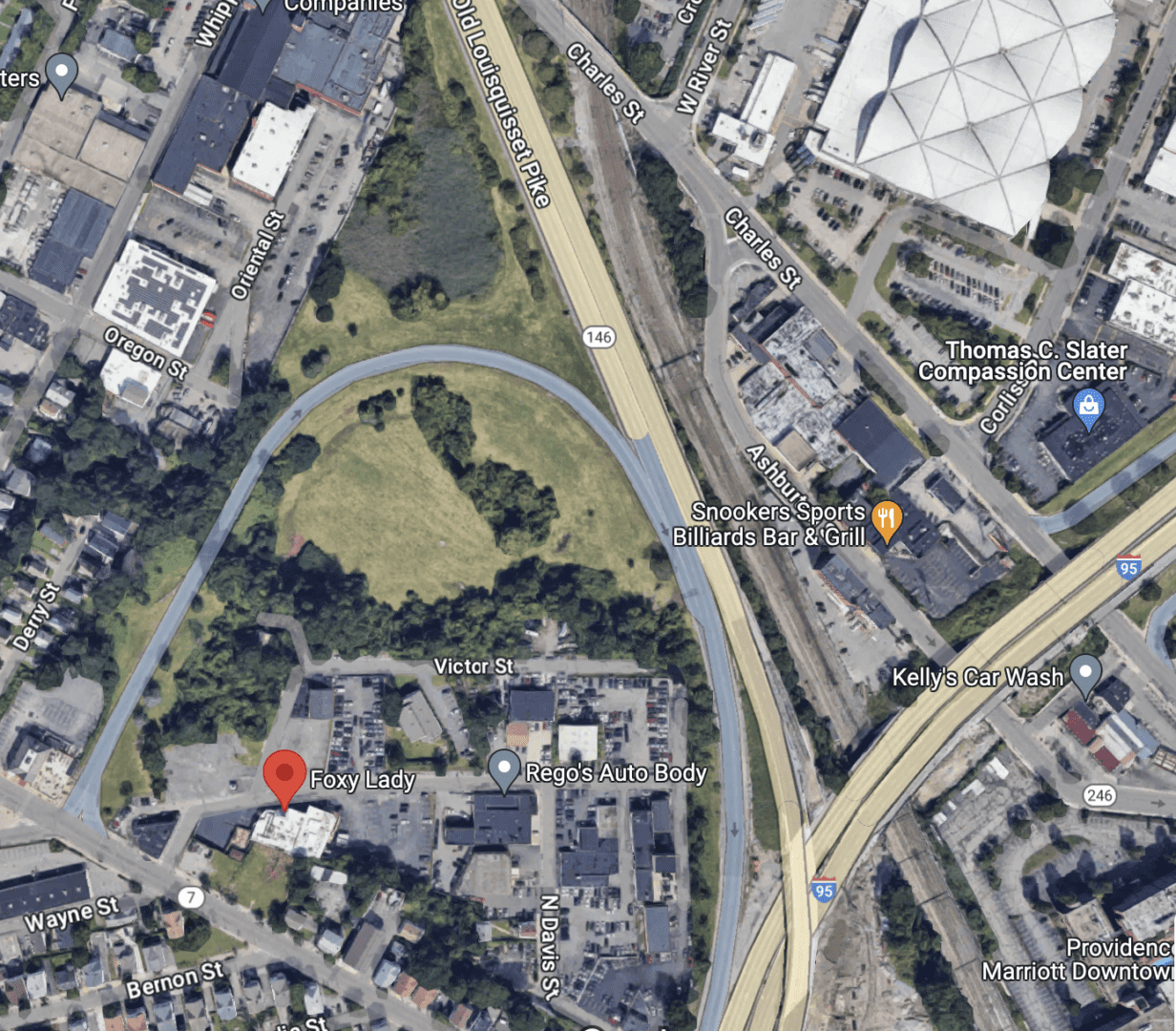
Homeless in RI: $3.3 Million for 45+ pop-up Pallet Shelter Village set for state land in Smith Hill
A long wanted Pallet Shelter village is headed for Rhode Island. From the time when the RI State House saw an encampment on its courtyard, and a sample unit was set up by a homeless advocate group. In other states, shelters like this have been put up, to mixed, but usually positive results. Location is everything towards that reception by the community. In Massachusetts, a shelter village is located on the grounds of a closed hospital. Pallet Shelter, the leading manufacturer of the shelters has seen a booming business, as the original one-person shelter has been joined by 2-person and 4-person shelters, and larger facilities for counseling, as well as shower and bathroom buildings. There is even a 2-person “en suite”, which includes water facilities. It’s unclear if Pallet Shelter is where the proposed Rhode Island shelter units would be coming from.
Pallet Shelter goes beyond selling product, to providing a guideline on how to implement the systems, politically, with info on how to spend ARPA funds, how to select a provider, and more, under a tab on their website called, “Build a Village”:
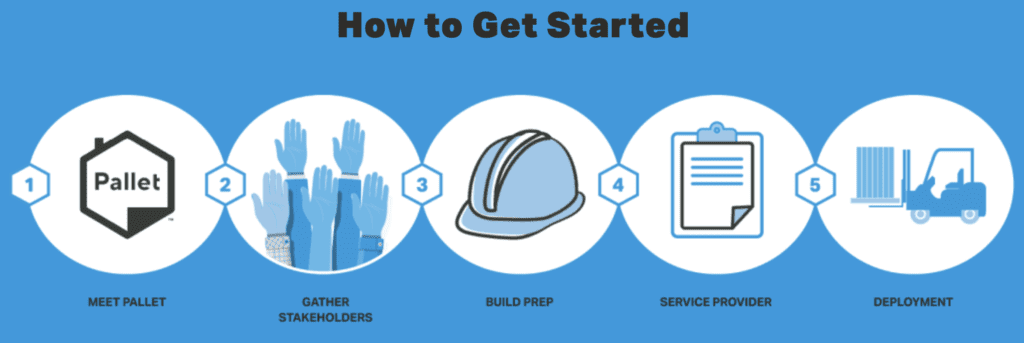
The site includes sample photos of Villages, including this one in Denver, with over 45 units divided in two, about the same size as is being planned for Providence:
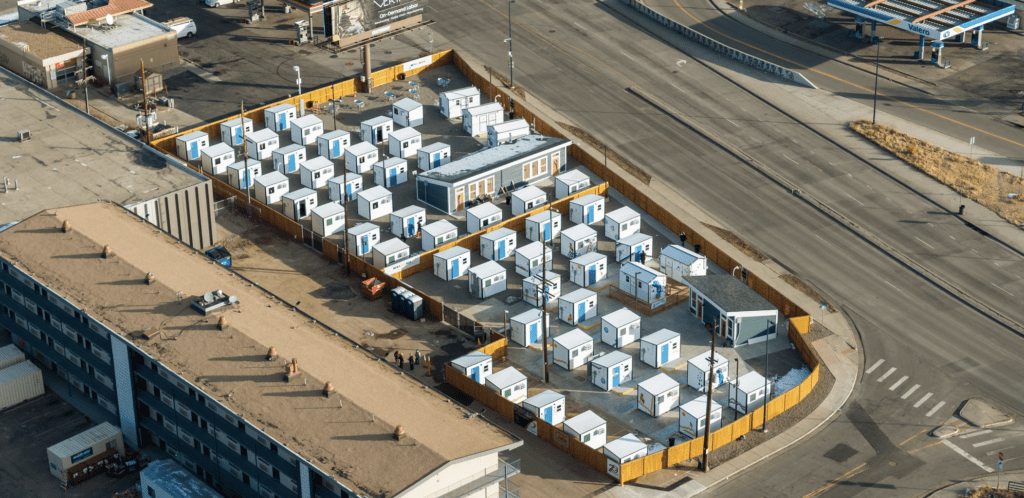
Housing Department statement:
The Rhode Island Department of Housing today announced that it is pursuing vacant state-owned land on Victor Street in Providence to serve as a temporary pallet shelter community for people experiencing homelessness in Rhode Island, pending final state approvals. This initiative is a collaboration with House of Hope Community Development Corporation, a housing and homelessness service provider in Rhode Island.
The pallet shelter community, spanning less than one acre of land, is located within a four-acre open field of state-owned property. This location was chosen for its proximity to transportation, services, and amenities, as well as its connection to municipal power, water, and sewer infrastructure. The entire site will be securely fenced with access facilitated through Victor Street.
“We’re pleased that the development of this pallet community is moving forward. ECHO Village will offer both shelter and supports to individuals who are currently experiencing homelessness,” said Secretary of Housing Stefan Pryor. “This initiative reflects our dedication to fostering well-being, dignity, and opportunity for vulnerable Rhode Islanders.”
If approved, the pallet shelter community created using rapidly deployable units will be constructed and operated by House of Hope and named ECHO Village. The community will feature 45 individual, free standing one-room units, 70 square feet in size, screened windows, fire extinguishers, smoke/CO2 detector, electrical outlets, and heating and cooling units. Staffed 24/7, the shelter community will include four free standing office units to provide such services as onsite case management, housing application assistance, benefits application assistance, job training, and health related supports, including substance use recovery and mental health services. A free-standing community room, ADA approved combination bathroom/shower facilities and laundry room will also be offered. Substance use will be prohibited on site, with access to recovery services available for pallet occupants.
The rapidly deployable units constructed by Pallet are an innovative rapid-response tool, creating temporary shelter units that are cost-effective and offer unsheltered individuals’ dignity, safety, and privacy as they transition toward permanent housing.
According to the 2022 Impact Report released by Pallet, approximately 100 pallet shelter communities have been constructed in 19 states or 74 cities throughout the United States. The two closest to Rhode Island include Burlington, Vermont and Boston, Massachusetts.
Boston, MA:
Shattuck Cottage Community in Boston has 18 individual pop-ups with community units, shower units, laundry, counseling, etc.
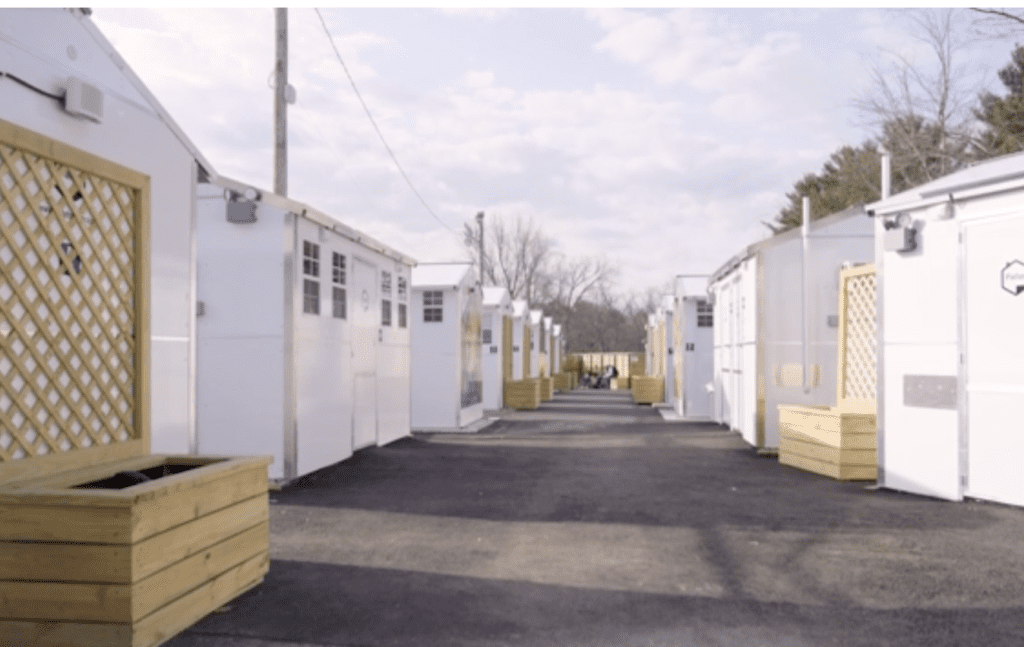

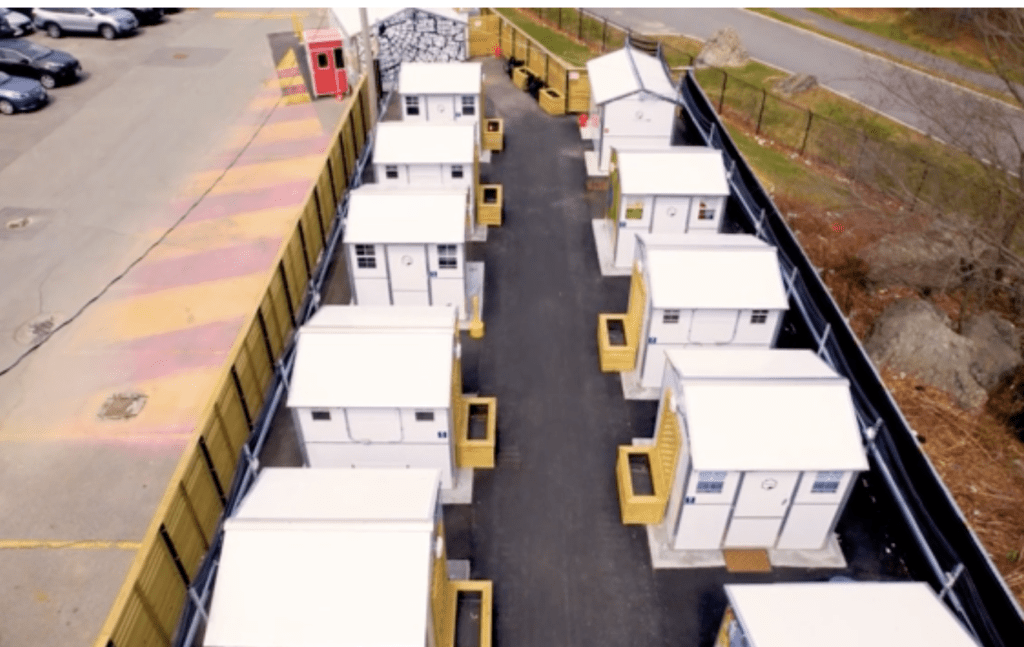

Link to more on Shattuck Cottages: https://www.commonwealthcarealliance.org/about-us/newsroom-publications/a-look-inside-the-shattuck-cottage-community/
_
Burlington, VT – Elmwood Community Emergency Shelter
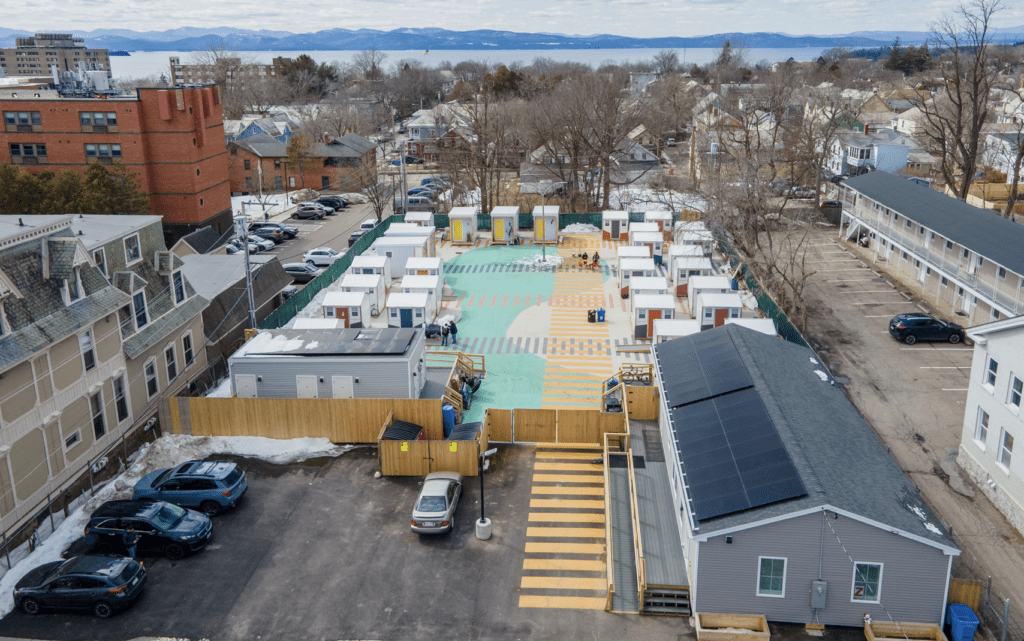
Approximately 25 units are operational with over 110 on a wait list.
More info here: https://www.burlingtonvt.gov/cedo/emergencyshelter
_
ECHO Village will rely on referrals from the Coordinated Entry System (CES) with priority given to highly vulnerable individuals who are unsheltered and historically have been unable to access emergency shelter.
“House of Hope is firmly rooted in the belief that housing is a basic human right,” said House of Hope Executive Director Laura Jaworski. “The construction of ECHO Village is a critical first step in creating a safe, stable, and dignified space for those experiencing homelessness while moving towards housing. We are thrilled to achieve this first milestone.”
The project is estimated to cost approximately $3.3 million, inclusive of site improvements, pallet product and construction, on-site services, and 24-hour staffing. All the structures are temporary and reusable. Funding sources include State Fiscal Recovery Funds (SFRF) and Community Development Block Grants (CDBG), as well as City of Providence resources.
“While Providence has been disproportionately impacted by the housing crisis in Rhode Island, we have consistently responded by providing the most resources, encouraging housing development to meet demand and working towards long-term solutions,” said Mayor Brett P. Smiley. “We have invested $4.3 million in making shelter beds, transitional housing and diversion services available for those most in need, and we expect to commit another $1.7 million in the current fiscal year. Pallet shelter programs have worked in communities across the country, and we hope this program can help our most vulnerable residents.”
“I’m thrilled to welcome ECHO Village to the North End—a compassionate and innovative solution to address homelessness in our community,” said Providence City Councilor Justin Roias (Ward 4). “In the North End, we’ve seen a concerning rise in homelessness, and the proposal to convert state-owned vacant land into a winter pallet shelter community aligns with my commitment to supporting unhoused neighbors in need, especially during the cold winter months. Rapidly deployable pallet shelters represent a dignified approach to providing housing, a vital measure in reducing homeless encampments in the North End and ensuring the safety of all our neighbors.”
It is unclear when the shelter may be ready to be opened – Pallet Shelter estimates 30 days from start to finish. A land use proposal will go before the appropriate committee in Providence, which does not meet until the end of January.
The first day of Spring is March 19th.

My concern is the state will realize these pallet houses work on a temporary basis, but then discover 45 is not enough and consider the potential for hundreds of them in the Pastore Center in Cranston.
And Ms. Luongo is correct: where is the funding that has been given so freely to homeless advocacy groups?
As Editor of Street Sights, the only unhoused magazine and resource guide in Rhode Island I do support Pallet Shelters that maybe coming to Victor Street in Providence. Having said that, I await the specifics on the Echo Village. I believe that 45 are to many in this area. I also believe its just a band aid. Can you imagine living in 70 square feet in size? I also have concerns about the Coordinated Entry list.
I have spoke to many unhoused folks who have been on the list for ever and have not received a call back. All of us need to be clear, that this is just a step to getting folks housing, not a solution!!
So much money has been given to so many organizations, where is the transparency of this funding? Where is the evaluations?